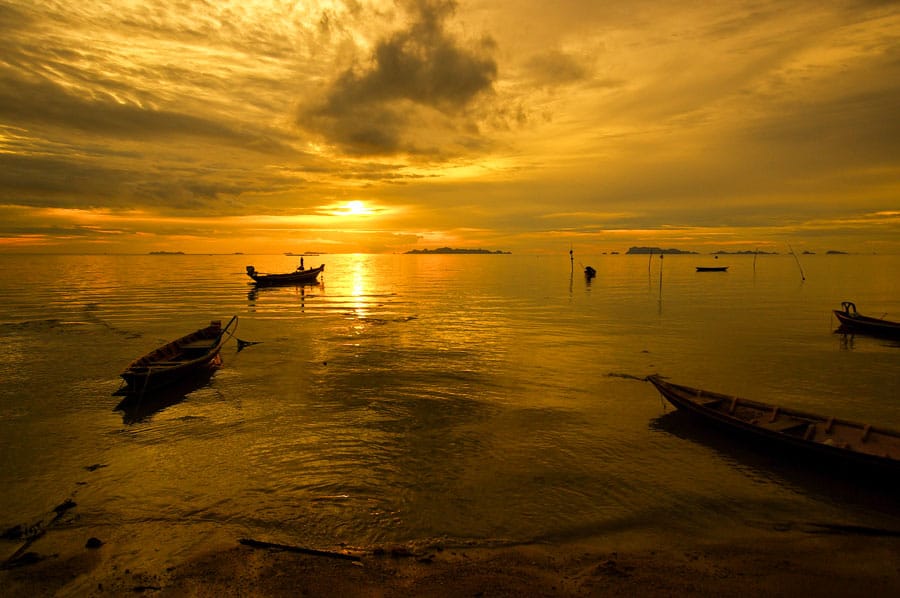
Thailand has a magical way of surprising you—sometimes with a life-changing bowl of noodles… and sometimes with a bathroom situation you did not mentally prepare for. 😅
This updated guide covers the “wish someone told me that” essentials: what to know about politics (and what to avoid saying), a handful of genuinely useful Thai phrases, crossing streets with confidence, temple dress codes, Bangkok air quality, monkey “manners” (spoiler: they have none), and the real truth about toilets in Southeast Asia.
Last updated: December 28, 2025 (service hours and travel notes verified where possible).
Thai politics: what tourists should know (without getting stressed)
Thailand’s politics can be fast-moving, and it’s not your job as a visitor to decode it all. What is useful: knowing what topics can create real trouble, and how to steer clear of it.
1) Expect political tension—and avoid protests
Thailand is heading into another election season: parties are registering PM candidates for an election scheduled February 8, 2026, after Parliament was dissolved in December 2025.
That doesn’t mean your trip will be impacted day-to-day—but demonstrations can happen, especially in Bangkok. Multiple government travel advisories recommend avoiding protests and large gatherings and following local guidance.
Easy rule: if you see crowds, signs, or heavy police presence—turn it into a snack break somewhere else.
2) The monarchy is not casual conversation
Thailand has strict lèse-majesté laws (royal insult laws). People have faced serious charges for speech online and offline, and the topic can be legally risky. Reuters+1
Tourist best practice: don’t criticize or joke about the King/royal family—ever—and don’t push locals to discuss it. Even if someone seems willing, you don’t want to be the reason their day gets complicated.
3) Border note (important right now)
Some advisories currently warn against travel near the Thailand–Cambodia border due to tensions. If your itinerary includes eastern border provinces, check official guidance before you go. Travel.gc.ca
Learn a little Thai: the phrases that actually help
Thai people are famously warm, and even a small attempt at the language gets smiles fast. Thai is tonal, so your pronunciation won’t be perfect—totally fine. Aim for “understandable + friendly,” not “fluent.”
Here are the biggest ROI phrases (romanized):
Polite basics
- Hello: sawasdee kráp (men) / sawasdee khâ (women)
- Thank you: khòp khun kráp / khòp khun khâ
- Sorry / excuse me: khǎw thôht
Practical travel
- Yes: châi
- No: mâi
- Bathroom: hông náam
- Where is the bathroom?: hông náam yùu thîi nǎi?
- How much?: thâo rài?
- Delicious: a-ròi!
Taxis
- Meter, please: châi mîi-ter nòi (or simply: “meter, khráp/khâ”)
A Thai “life philosophy” word
- mâi pen rai = “it’s okay / no worries / all good / such is life”
You’ll use mâi pen rai constantly—bumped into someone? wrong turn? spilled iced coffee? mâi pen rai. It’s basically Thailand’s emotional air-conditioning.
Haggling: yes, but make it kind
In markets, haggling can be normal—especially where prices aren’t clearly posted. But it’s not a sport. A good rhythm:
- Smile, ask the price
- Offer a lower number you can live with
- Meet in the middle
- If it’s not working, smile and walk away
Also: if the difference is the equivalent of a couple coins and the vendor is clearly working hard… you’re already winning by being in Thailand. Sometimes the best negotiation is paying fairly and enjoying your mango sticky rice in peace.
Traffic and crossing streets: Bangkok rules are… different
Traffic is one of the biggest “whoa” moments for visitors. The sidewalks can be uneven or blocked, motorbikes appear where you didn’t know a motorbike could appear, and crossings don’t always behave like home.
Street-crossing survival tips
- Cross where others cross (a small group is safer)
- Move steadily and predictably—don’t stop mid-cross
- Make eye contact with drivers only if you intend to keep moving
- Use pedestrian bridges when they’re convenient (yes, the stairs can feel like a workout—welcome to Bangkok cardio)
Big safety note: Road accidents are a major cause of traveler injuries. Be extra cautious with scooters/motorbike taxis if you’re not experienced.
“Why act differently than at home?” (the vacation logic trap)
Thailand invites adventure, but don’t let “I’m traveling!” override your common sense.
- If you wear a seatbelt at home, wear it here.
- If you wouldn’t jump on a motorbike in a city you don’t know, don’t do it because it’s “part of the vibe.”
- If you wouldn’t get blackout drunk without a plan, don’t do it on Khao San Road with your passport in your pocket.
You can have the best stories and keep your trip intact. Thailand is way more fun when you’re not spending day 4 learning how foreign insurance works.
Temple dress code: cover up, then enjoy the magic
Temples (wats) are stunning—gold, mosaics, incense, quiet chanting, and the kind of calm that makes you forget you were just in scooter chaos 10 minutes ago.
Typical dress expectations
- Shoulders covered
- Knees covered
- Shoes off inside temple buildings
Bangkok’s Grand Palace is strict, and it’s also one of the most visited sights—plan accordingly. Also, yes, it’s open daily and easy to verify before you go. Royal Grand Palace
Photo etiquette: avoid photographing people who are actively praying. It’s not a museum moment for them—it’s real life.
Smog and air quality: what to do (without panic)
Bangkok’s air quality can swing a lot depending on season, weather, and traffic. Research and local reporting often point to a heavier pollution window around November–February in Bangkok.
Northern Thailand (including Chiang Mai) can experience a more intense haze season tied to regional burning and weather patterns, commonly January–April, often peaking later in that stretch.
Simple, sane approach
- Pack a quality mask (look for a PM2.5-rated mask, ideally N95/KN95)
- On bad days: do indoor temples/museums/malls, shorten outdoor workouts
- If you have asthma or respiratory issues, be extra cautious and monitor how you feel
Bangkok health guidance during elevated PM2.5 periods commonly recommends masks and reducing strenuous outdoor activity.
Monkeys: cute, clever… and absolutely not your friends
Some travelers see monkeys and think, “Aww!”
Monkeys see travelers and think, “Free snacks and unattended phones!”
Macaques (common in tourist areas) can bite or scratch, and public health guidance warns they can transmit rabies and even B virus, which can be extremely serious. The safest move is simple: don’t touch, don’t feed, don’t get close. CDC
Thailand has even had high-profile monkey issues in places like Lopburi, where authorities stepped in after aggressive behavior increased.
Monkey-proofing tips
- Keep food out of sight (they recognize bags)
- Don’t dangle plastic bags or shiny objects
- If one approaches: stay calm, back away slowly, protect your face, don’t “square up” like it’s a duel
The toilet situation: everything you need to know (and then some)
Welcome to the part of the guide you’ll thank me for later.
1) You may encounter squat toilets
Squat toilets still exist in parts of Thailand (more common in older/public restrooms). If you want the full cultural experience, try it once—just don’t choose “the busiest bus station bathroom of your life” as your first attempt.
2) The “bum gun” is your new roommate
The most common bathroom tool in Thailand is the handheld bidet sprayer—affectionately called the bum gun.
How it usually works
- You do your thing
- Use a little toilet paper first if you want (for drying and cleanup)
- Use the sprayer (start gently—trust me)
- Dry with a small amount of paper
3) “Do not flush toilet paper” signs are real—follow them
In many places, you’ll see signs asking you not to flush toilet paper. If there’s a bin, use it. If there’s no bin and the bathroom feels more “modern hotel,” it may be fine—but the safest rule is: follow the signage in that specific restroom.
Plenty of travelers are surprised by this, but once you accept it as “local plumbing reality,” it becomes normal in about 48 hours. Chai Lai Orchid
Getting around Bangkok: do this and you’ll save hours
Bangkok is huge. Traffic can turn a short distance into a long meditation session you did not request.
1) Stay near rail transit
If you’re choosing hotels, being near BTS or MRT is the difference between “effortless city exploring” and “why am I still in this taxi?”
- BTS service hours listed as 06:00–24:00.
- MRT commonly runs until midnight, with special extensions on holidays.
2) Use Grab when you want zero negotiation
Grab works in Thailand and is perfect when:
- you don’t want to explain directions
- you want price transparency
- you’re tired and just want to arrive
Grab is actively available in Thailand. Grab
3) Taxis: insist on the meter
Metered taxis can be great—but some drivers try to negotiate a flat rate. If they won’t use the meter, it’s okay to politely exit and try the next one. (You’re not being rude; you’re being normal.)
Street food is safe (and it’s one of the best parts of Thailand)
Thailand’s street food is a highlight for a reason: high turnover, cooked-to-order dishes, and vendors who often specialize in just a handful of items.
How to pick a good stall
- Busy stall = good sign (fresh ingredients + lots of locals)
- Food cooked hot in front of you
- Clean-ish setup (it doesn’t need to be sterile—just cared for)
Skip street food and you risk missing some of the best meals of your life… for the price of a fancy coffee back home.
FAQ: quick answers travelers always ask
Is Thailand safe?
Generally, yes—especially for typical tourism routes. Use normal big-city precautions, avoid protests, and don’t take risky transport chances. Official advisories still highlight demonstrations and road safety as key concerns.
What scams should I watch for?
The most common annoyance is tourist pricing and transport negotiations. Reduce headaches by using Grab, staying near rail lines, and using the taxi meter when you do hail a cab.
When should I worry about air pollution?
Bangkok often has a heavier PM2.5 period around Nov–Feb, while Chiang Mai/northern areas can see a longer haze period Jan–Apr. Bring a good mask and flex your itinerary if the air is rough.

